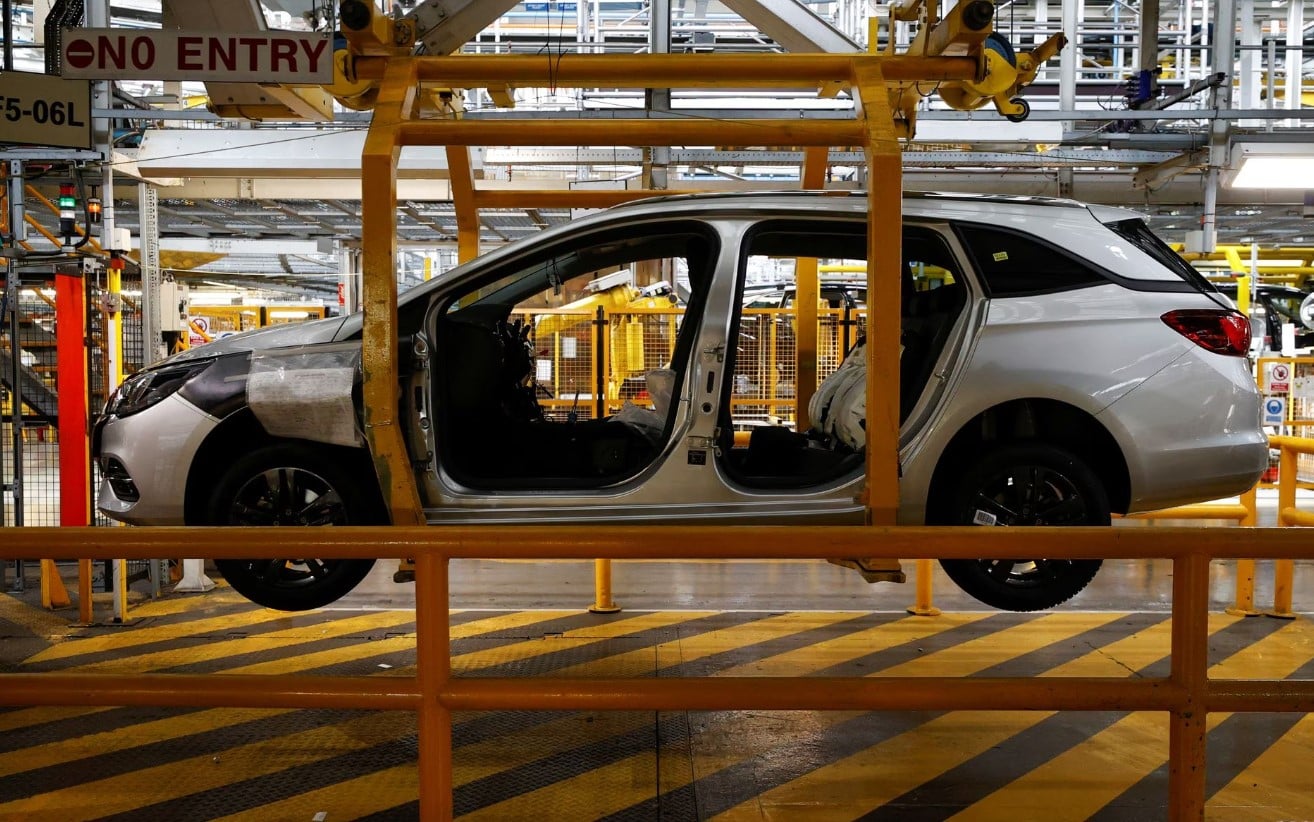British car plants will close with the loss of thousands of jobs unless the Brexit deal is swiftly renegotiated, Stellantis (STLAM.MI) has told the UK parliament, the latest in a series of warnings from the industry since the country left the European Union.
The world’s No. 3 carmaker by sales and owner of 14 brands including Vauxhall, Peugeot, Citroen and Fiat said that under the current deal it would face tariffs when exporting electric vans to Europe from next year, when tougher post-Brexit rules come into force.
“If the cost of EV (electric vehicle) manufacturing in the UK becomes uncompetitive and unsustainable, operations will close,” Stellantis said in a submission to a House of Commons committee examining the prospects for Britain’s EV industry.
Stellantis urged the government to reach an agreement with the European Union about extending the current rules on the sourcing of parts until 2027 instead of the planned 2024 change.
In response, a government spokesperson said the business secretary had raised the issue with the EU.
“Watch this space, because we are very focused on making sure that the UK gets EV and manufacturing capacity,” Britain’s finance minister Jeremy Hunt said on Wednesday at a British Chambers of Commerce event.
The potentially existential problem facing Britain’s car industry is closely tied to the shift to EVs.
Under the trade deal agreed when Britain left the bloc, 45 per cent of the value of an EV being sold in the European Union must come from Britain or the EU from 2024 to avoid tariffs.
The problem is that a battery pack can account for up to half a new EV’s cost. Batteries are also heavy and expensive to move long distances.
Experts have been warning since Britain left the EU at the end of 2020 that the country would need a number of EV battery gigafactories or potentially lose a hefty chunk of its car industry.
Only Japan’s Nissan (7201.T) has a small EV battery plant in Sunderland, with a second one on the way.
COST OF FAILURE
Britishvolt, a startup which received UK government support for an ambitious 3.8 billion pound ($4.80 billion) battery plant at a site in northern England, filed for administration in January after struggling to raise funds.
The company was then bought by Australia’s Recharge Industries, which has yet to unveil plans for the site.
In order to save its car industry, Britain must extend the timeframe with the EU and urgently attract battery manufacturers and other auto suppliers to set up here, Andy Palmer, former Nissan chief operating officer, told BBC radio.
“The cost of failure is very clear. It’s 800,000 jobs in the UK, which is basically those jobs associated with the car industry,” said Palmer, who is also chairman of European battery manufacturer InoBat.
“If you don’t have a battery capability in the UK, then those car manufacturers will move to mainland Europe.”
Britain’s Society of Motor Manufacturers and Traders trade group said in a submission to parliament that current manufacturing capability in the EU and Britain would not allow the sector to meet the requirements for batteries and battery parts.
The warnings come as carmakers globally are selecting sites to build new battery gigafactories.
Last week the chief financial officer of Tata Motors (TAMO.NS), the owner of Jaguar Land Rover, said it had not decided on a location for a new battery plant but advanced talks were underway.
Reuters reported in February that Tata was considering building an EV battery plant in Spain or Britain.
Stellantis announced a 100 million pound ($126 million) EV investment in its Ellesmere Port site in 2021. It said in the submission that at the time it had believed it could create enough parts in Britain or Europe to meet the post-Brexit rules, but is now unable to do so.
($1 = 0.7923 pounds)







Click here to change your cookie preferences